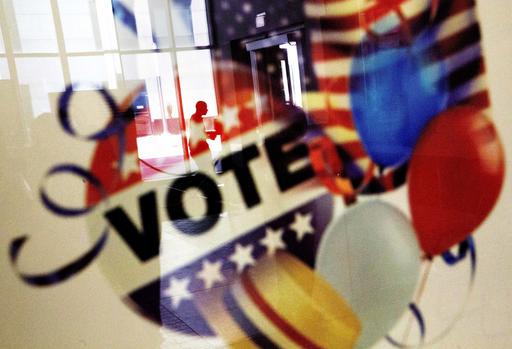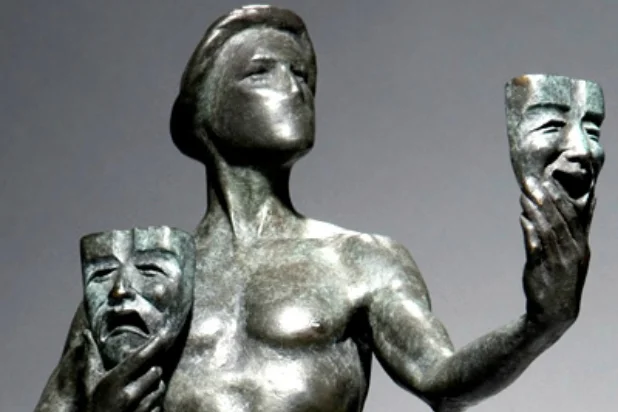What You Need to Know: Electoral College

In this Nov. 1, 2016, photo, a voter is reflected in the glass frame of a poster while leaving a polling site in Atlanta, during early voting ahead of the Nov. 8 election day. If all goes smoothly, the American people will choose a new president on Tuesday, the Electoral College will affirm the election and either Democrat Hillary Clinton or Republican Donald Trump will take the oath of office Jan. 20. (AP Photo/David Goldman)
The Electoral College, a system put in place by the founding fathers to act like a safety net in case the people of the United States made the wrong choice in pertaining to the election of the president. It is an indirect system for voting for the president, not to be confused with popular vote, the Electoral College is voted on by the states. The Electoral College allows the electors to take the people into consideration when casting their votes, usually the elector are party leaders from each state but they are normal people as well.
In total there are 538 electors: 435 members of the House of Representatives, 100 US senators, and 3 from the District of Columbia. To win, one would have to get 270 votes. As soon as one of the candidates gets 270 votes, technically they win. Officially, however, December 19 is the date the Electoral votes are actually cast and the President is voted on. This does not necessarily mean that the one who won originally could actually not win because regardless the votes basically stay the same. January is when the votes are counted and then January 20 is Inauguration day.
The Electoral College is provided for in the twenty-third amendment and twelfth amendment and Article 2 Section 1 with more populous states having a greater number of electoral votes (representation by population). The Electoral College allows for more urban areas to have a voice. It is also the reason for swing states and why the presidential candidates go to certain states more than others. If the Electoral College was taken away then four states would be deciding the president and would be even more relevant. Texas, California, Florida and New York would have control over the election because of each state’s size and population. The Electoral College helps make states more important while also giving checks on the system and not giving too much control. However, it leaves room for a more two party system even with the technicality of there being more than two parties running.
The Electoral College is in place for a reason, whether or not it will be taken away is up for debate. With more and more people becoming upset over it, the people of the United States seem to forget that the United States is not a full democratic society but, in fact, a democratic republic. Getting rid of the Electoral College would mean nearly becoming a full democracy. What happens in the upcoming years will determine the outcome for the Electoral College.
Want to help the Herd? Please consider supporting the Periscope program. Your donation will support the student journalists of CHS and allow us to purchase equipment, send students to workshops/camps, and cover our annual website hosting costs.

Olivia Boyd is currently a senior in Carlisle Area High School and this is her first year in Periscope. Olivia is the news section editor for the 2016-2017...






























































































